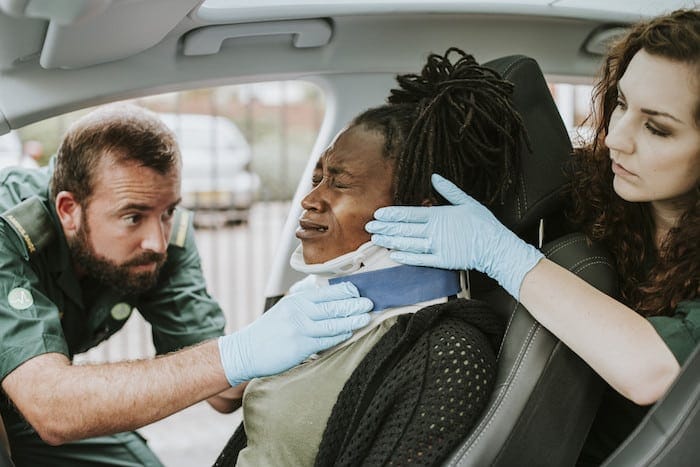
Around 2 million permanent injuries result from car accidents every year! When a car accident catches someone by surprise, they want to be able to treat their injuries using health insurance.
Does health insurance cover car accident injuries? The answer is more complex than you think. Here’s how to get reimbursed for medical bills after a crash.
Does Health Insurance Cover Car Accident Injuries?
Once a patient is safe and healing from car accident injuries, their next big question is probably going to be is all this covered by medical insurance? Ambulance rides and nights in the hospital can quickly rack up a large bill. So how will their health insurance help out?
There are three factors that will play a role in how everything gets covered. This includes the type of accident, their health insurance, and lastly the state that you live in.
Who is Responsible?
Even if the other driver or defendant is brought to court and proven to be at fault, the patient may need to pay some of their bills before the case is settled. In addition, the defendant is not going to be responsible for ongoing medical payments as they come in.
If the patient is able to win their case, then the defendant may be found responsible for covering any damages which can include medical bills. However, if there are long term effects from the accident that cause ongoing medical bills, the patient may need to cover those in the future.
What About “No Fault” States?
In states that have “no fault” laws, car insurance will usually pay the majority of the medical bills. This can be expected up to the “no fault” limit, which depends on an auto insurance’s particular details.
If you are found to have serious injuries, you may be able to file a liability claim against the at-fault driver. This could require them to pay the additional cost of your expensive medical bills.
For Non-“No Fault” States
If you live in a state that does not have “no fault” insurance then the laws are a bit different. The individual patient is expected to pay medical expenses using their health insurance. Typically insurance in these states has medical payment or “med pay” coverage that will pay for medical bills up to a certain limit.
Once it exceeds this limit, they will be responsible for paying their medical bills. Unfortunately, med pay coverage is not required. So if their medical insurance does not offer it and the person at fault also doesn’t have med pay, then the patient is directly responsible for payments.
Protect Yourself
If a patient is not familiar with the process for receiving what they deserve for injuries from an accident, then they may find themselves hit with a hefty bill due to medical treatments.
An experienced attorney can help a patient get the reimbursement they deserve for not only the medical bills but also the emotional stress, missed work, and suffering endured. They can also help negotiate with medical insurance companies or defer payments until a case is settled.
Have You Been Injured?
If you or someone you know has been injured in a car accident, no matter how severe, you may not know how to pay for all of your medical bills or what is covered. We hope this article has helped you answer the question: Does health insurance cover car accident injuries?
Be sure to get the professional help you need to negotiate a fair deal. Looking for more helpful life advice? Visit our blog for some more informative news for your healthcare business.
The Editorial Team at Healthcare Business Today is made up of skilled healthcare writers and experts, led by our managing editor, Daniel Casciato, who has over 25 years of experience in healthcare writing. Since 1998, we have produced compelling and informative content for numerous publications, establishing ourselves as a trusted resource for health and wellness information. We offer readers access to fresh health, medicine, science, and technology developments and the latest in patient news, emphasizing how these developments affect our lives.







